When pursuing bird photography and wildlife, I recommend separation of your subject from the background, and each other, for better images.
Fire when ready
There’s a tendency to shoot a lot of frames when photographing avian creatures. They move fast, so wing positions are more or less exciting in certain positions. One technique is to recognize when the birds are overlapping or are being lost in the background. Then don’t fire the shutter. It will save you a lot of culling time after the session. Solid separation is directly proportional to good timing.
Some examples
Silhouettes are extremely unforgiving. Here are two scenic silhouettes against a gorgeous colorful sky. One below and one headlining this article. These were taken from the same set of birds as they went on their way through the scene. Note that in one image all sandhill cranes are visible and readable. In the one below some of the birds clumped-up making for large darker undefined voids.
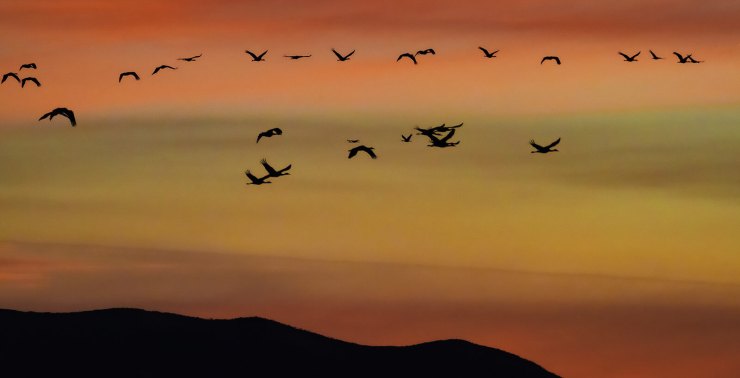
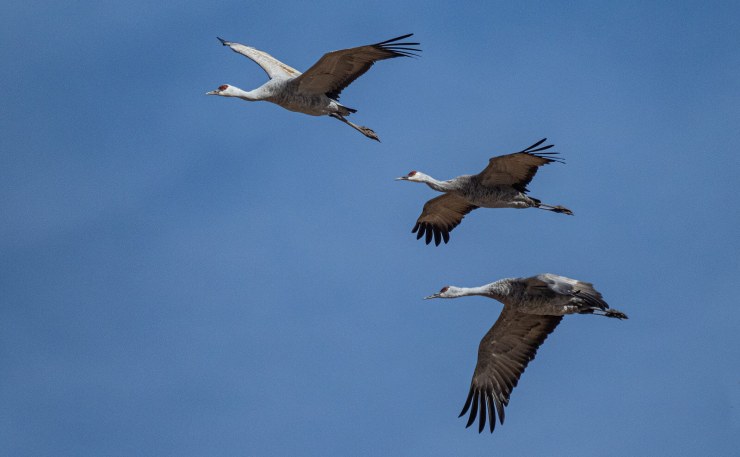
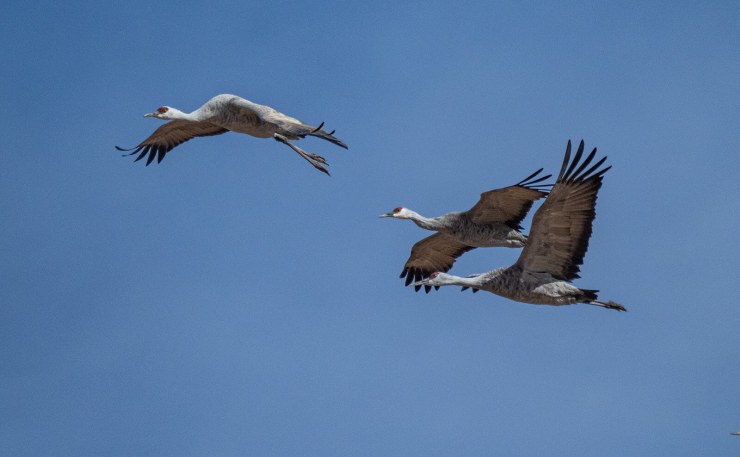
As sandhill cranes mate for life they often will be seen flying extremely close together. If you are not careful the result can be as bad as the silhouette below. Moments before, the cranes showed as separate entities in and of themselves. Much preferable!
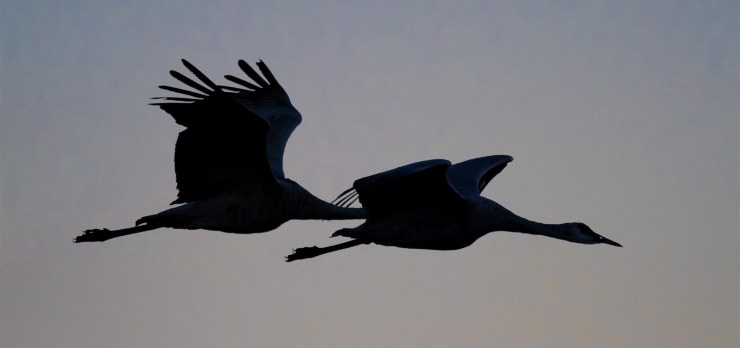
Kit used
The majority of my wildlife work is made with the 100-400mm f/5.0-6.3 Olympus M. Zukio ED lens mounted on the OM-D E-M1 Mark III camera. In this case targets were a bit further away and I added a 1.4 extender. The net result is a field of view similar to a full frame 1120mm. Tracking the flight of the birds is made much easier, and steadier with the FotoPro Eagle E6L carbon fiber tripod. After starting to use a tripod with a gimbal head versus trying to handhold, my rate of keeper images went up exponentially.
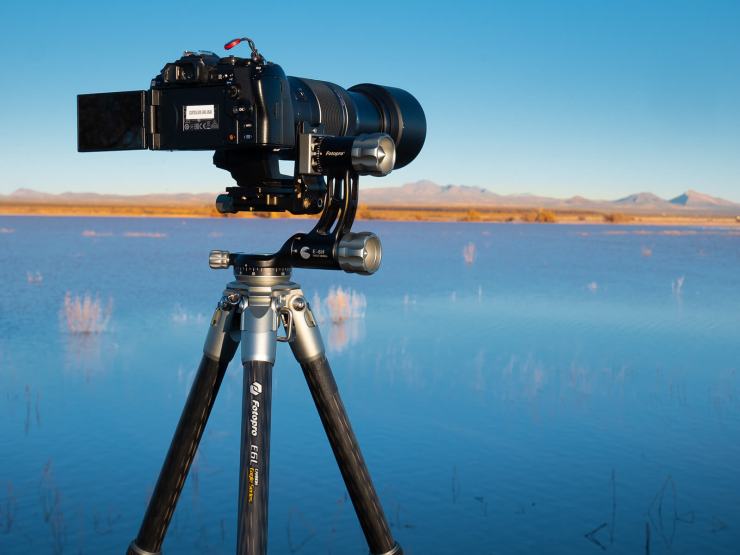
Final thoughts
When you first shoot, fire away! Don’t miss shots you don’t know about as you learn the bird’s behaviors. You will soon learn what images will tend to be more keepers and less for the trash can. As such, you can be more discerning with your bird photography in the times you press the shutter button.
Yours in Creative Photography, Bob
Tell your story with the second annual Visual Storytelling Conference!
Experience four days of interactive, online training sessions featuring a range of educational content with experienced photographers and content creators. This free event kicks off with a series of technical boot camps to build essential skills, followed by live, online sessions on photography, video, business and social media. Join live from March 10-13, 2022!
